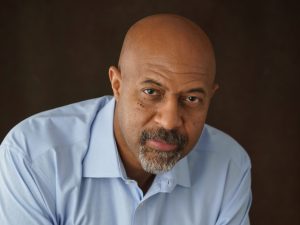
Facebook has hired Roy Austin to become its first-ever VP of Civil Rights and Deputy General Counsel to create a new civil rights organization within the company, Facebook announced today. Austin is set to start on January 19 and will be based in Washington, DC.
Austin most recently served as a civil rights lawyer at Harris, Wiltshire & Grannis LLP. Prior to that, Austin co-authored a report on big data and civil rights and worked with President Barack Obama’s Task Force on 21st Century Policing.
“I am excited to join Facebook at this moment when there is a national and global awakening happening around civil rights,” Austin said in a statement.

Roy Austin, Facebook’s new VP of Civil Rights. Image Credits: Facebook
“Technology plays a role in nearly every part of our lives, and it’s important that it be used to overcome the historic discrimination and hate which so many underrepresented groups have faced, rather than to exacerbate it. I could not pass up the opportunity to join a company whose products are used by so many and which impacts the civil rights and liberties of billions of people, in order to help steer a better way forward.”
It’s not clear what the goals or responsibilities of the civil rights organization within Facebook will be, but we’ve reached out to Facebook for more information. In the meantime, here’s what Facebook’s Chief General Counsel Jennifer Newstead said on the company blog:
I am delighted to welcome Roy to Facebook as our VP of Civil Rights. Roy has proved throughout his career that he is a passionate and principled advocate for civil rights — whether it is in the courtroom or the White House. I know he will bring the same wisdom, integrity and dedication to Facebook. It’s hard to imagine anyone better qualified to help us strengthen and advance civil rights on our platform and in our company.
In July, former ACLU director Laura W. Murphy released the results of the multiyear investigation and civil rights audit of Facebook. The report highlights some progress, such as Facebook changing its policy on discriminatory housing and employment ads, expanding its voter suppression policies and having more frequent meetings with civil rights leaders. But the auditors still raised a number of concerns, many of which pertained to the 2020 U.S. election and President Trump.
In light of a pro-Trump mob storming the U.S. Capitol last week, Facebook CEO Mark Zuckerberg blocked Trump from both Facebook and Instagram at least through the inauguration of President-elect Joe Biden.

